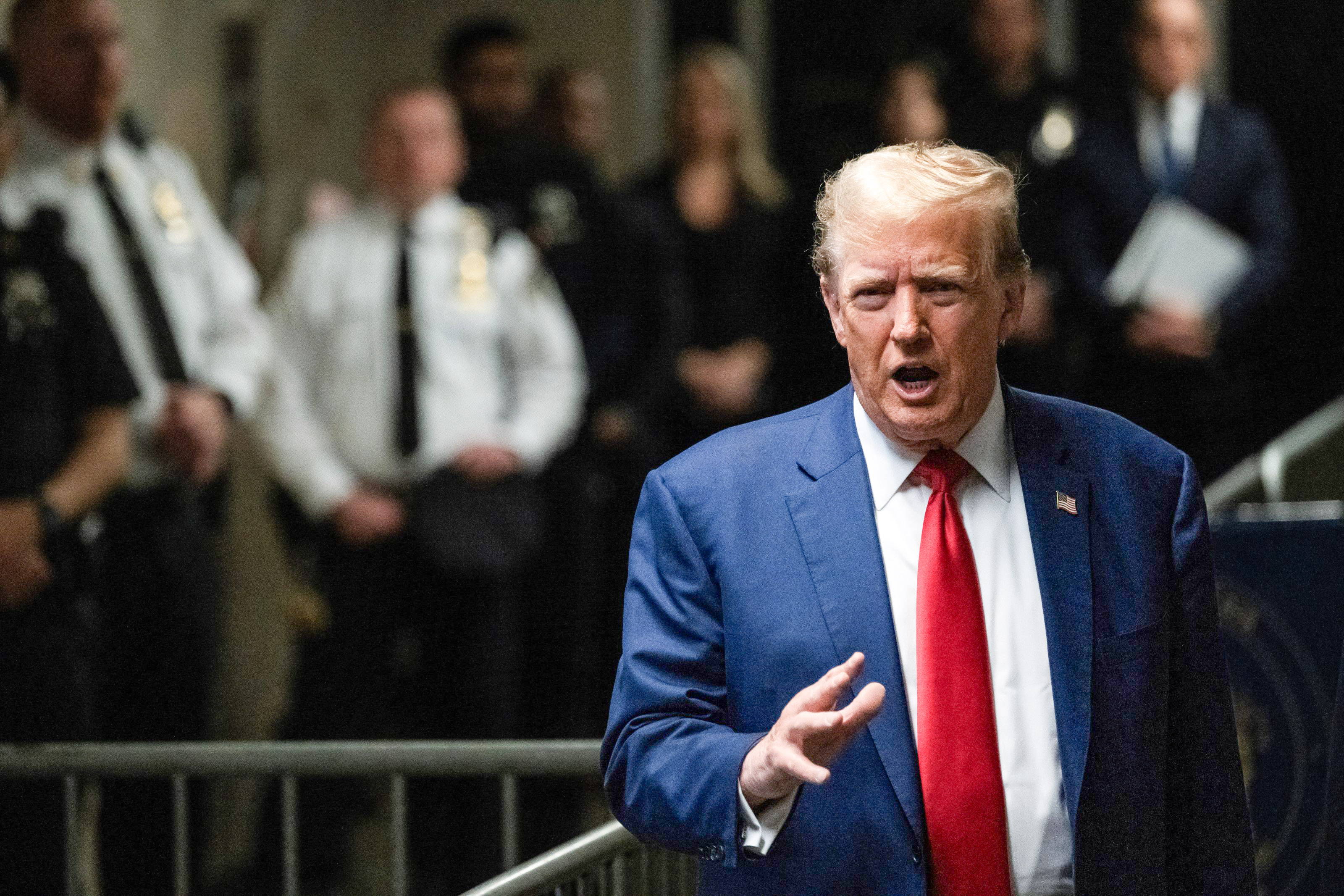Updated
Prosecutors Say They Expect to Rest Case in Trump Trial Next Week
Save

Former President Donald Trump speaks to the press as he arrives for his criminal trial for allegedly covering up hush money payments at Manhattan Criminal Court on May 10, 2024 in New York City.Victor J. Blue - Pool/Getty Images
Here is the latest
•
What Happened Today
•
Trump Says 'Amazing' That Cohen Has No Gag Order
•
Defense Asks for Gag Order on Michael Cohen
•
Attorneys Argue Over Weisselberg Evidence, Lack of Testimony
•
Prosecutors Say 2 More Witnesses